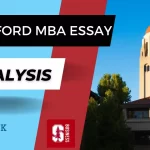Four Career-Oriented Books MBA Aspirants Need To Read

Reading is an important aspect in developing an individual’s personality, and more so for MBA aspirants who end up reading hordes of cases through the course of an MBA program. Reading can define and develop a person’s character, and can open up the reader to newer avenues and perspectives. Today we take a look at the books that Darden School of Business’ Alumni Career Services coaches have listed as essential reading within the business genre. Read on.
The Ride of a Lifetime: Lessons Learned From 15 Years as CEO of the Walt Disney Company by Robert Iger.
The Ride of a Lifetime is the story of the CEO of Walt Disney, Bob Iger. Tracing his journey from 2005, when he became the CEO of the company during a tumultuous time to how he managed to turn Disney into the largest, most respected media company in the world, including acquisitions such as Marvel, Pixar, 21st Century Fox and more, the book is a great read for anyone who wants an insight into one of the most innovative and successful CEOs of this era.
Within the book, Iger also shares the lessons he’s learned while running Disney, including:
- Optimism – Even in the face of difficulty, an optimistic leader will find the path toward the best possible outcome and focus on that, rather than give in to pessimism and blaming.
- Courage – Leaders have to be willing to take risks and place big bets. Fear of failure destroys creativity.
- Decisiveness – All decisions, no matter how difficult, can be made on a timely basis. Indecisiveness is both wasteful and destructive to morale.
- Fairness – Treat people decently, with empathy, and be accessible to them.
Triggers: Creating Behavior That Lasts – Becoming the Person You Want to Be by Marshall Goldsmith
Written by renowned executive coach and psychologist Marshall Goldsmith, Triggers examines the emotional and psychological triggers that cause us to react and behave in certain ways at work and in life, which might often be construed as inappropriate.
The book focuses on understanding these triggers and how they affect us, so as to control our responses in a much better and effective way. Through the book, Goldsmith also explores the importance of asking important questions such as: “Did I do my best to make progress toward my goal?” or “Did I work hard at being fully engaged?”, as well as taking responsibility for your actions.
Goldsmith also helps readers understand how and why bringing in behavioral changes as adults is so difficult, and provides a roadmap to avoid frustrations due to the initial failures, as well as best practices to implement those changes.
Rather than ending up frustrated by all of the roadblocks that can and do get in our way, readers may find it helpful to understand how much humans are up against in their efforts to move forward. By understanding the magnitude of potential roadblocks, readers are likely to find themselves more sympathetic to others’ frustrations — and their own — as they attempt to make significant behavioral changes.
Company of One – Why Staying Small is the Next Big Thing for Business by Paul Jarvis
Taking a completely different approach from the books that emphasize growing bigger and scaling up, ‘Company of One’ takes the opposite route. Paul Jarvis instead evangelizes a new approach to business by staying small and avoiding growth. Throughout the book, he maintains that keeping a business small brings freedom to pursue more meaningful pleasures in life, and avoid the headaches that result from dealing with employees, long meetings, or worrying about expansion.
A good book for those who don’t want to run their business using too many resources, but still want higher profits, ‘Company of One’ is also highly recommended for those who are still in the early exploration stage of running their own business.
Replace Retirement: Living Your Legacy in the Exponential Ageby John D. Anderson
John Anderson focuses on looking at the future through an exponential lens to create a plan which is more purposeful, rewarding and inspiring. With examples of successful stories and tools, including John’s own ‘Legacy Map’ (a unique system developed by Anderson to inspire and challenge leaders to envision the second-half of life as a time of exponential impact and abundance) with the goal of instilling in leaders a desire to:
- Make the second half of their lives better than the first
- Add ten to thirty years of purposeful living
- Live their legacy daily by design






